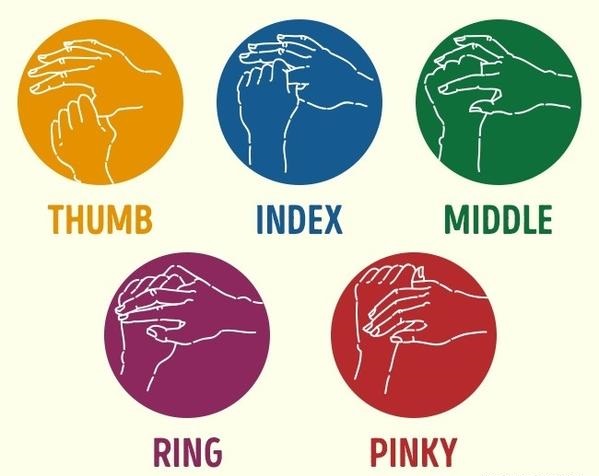When we are angry, it can be difficult to find a way out. We might become more frustrated and even angrier if the things that make us angry don’t change. In this blog post, we will discuss why people get angry, how anger affects our lives, and explore tips and therapies on how to release your anger!
Contents
What Is Anger?

Anger is defined as a strong feeling of displeasure or hostility. It usually results from feelings of frustration, hurt, or disappointment. Anger can be directed towards other people, things, or situations.
It is a normal, natural emotion that everyone experiences at some point in their lives. While anger can be helpful in certain situations – such as when it motivates us to take action – too much anger can become a problem and lead to serious health issues.
NOTE: Anger is usually associated with feelings of frustration, rage, or hostility and can sometimes lead to destructive or harmful behavior.
What Causes Anger?
Many different factors can cause someone to feel angry. Some common causes include:
- Feeling frustrated because you can’t control a situation
- Feeling like you are being ignored or not listened to
- Experiencing physical or emotional pain
- Seeing someone else being treated unfairly or poorly
- Feeling like you or your values are not respected
NOTE: There can be many triggers that cause people to become angry. It is important to recognize what makes you feel angry and learn how to manage this feeling before it gets out of hand!
Possible Ill-Effects of Anger

Anger can have some harmful consequences if it is not managed properly. Some possible ill-effects include:
- Physical health problems such as high blood pressure, headaches, and stomach problems
- Substance abuse
- Relationship problems
- Problems at work or school
- Anger can also lead to aggressive and destructive behavior
The Anger Management Process
It can be difficult to release anger and there’s no ‘one size fits all solution that works for everyone depending on how they’re feeling and what is happening in their life at a particular point in time. However, over time you could find yourself becoming less angry and frustrated as you work through the anger management process.
Useful Tips to Release Anger
If anger is causing problems in your life, it may help to take a step back and learn how to address this feeling effectively.
Handy Tips

Next time before you are going to lash out at someone, you might try these handy tips:
- Allow yourself time to cool off before reacting
- Take deep breaths – try counting slowly from one to ten before responding
- Introspect and address the source of the anger
- Think before you speak
Practical Tips
Here are some tips that might help you cope with your anger issues in the long run:
Express It
Healthily express your anger. This can include writing down how you feel, talking to a friend, or going for a walk.
- Write down how you are feeling and why this anger is happening – understanding your feelings can help to manage them better!
Find an outlet for your anger. This could include going for a run or playing sports, which will help you get your anger out in a healthy way.
See The Consequences
Remind yourself why it’s important to be patient and calm. Think about the consequences of losing your temper. Such as hurting someone else or getting fired from your job. It might also help to remind yourself that things will not always go wrong!
Try And Understand Yourself
Don’t take your anger out on other people. If someone is making you angry, it might be tempting to lash out at them or blame them for the way that you feel. However, this won’t solve anything and could make things worse! It’s important to try and understand why they are acting in such a way rather than lashing out.
Healthy Boundaries
Set healthy boundaries. If someone is making you angry, it can be difficult to maintain a healthy relationship with them. It might help to set some clear boundaries and communicate your feelings honestly without lashing out at the other person.
Be Kind To Yourself
If you’re feeling frustrated or upset, it might not be easy to remain calm and patient. Try your best! Keep in mind that everyone makes mistakes sometimes – even if they are small ones – so try not to take things too personally when this happens.
Don’t Be Afraid To Ask For Help
If you’re struggling with managing your anger, it might help to speak with a friend, family member, or mental health professional about what’s going on.
In short– If these tips don’t work for you, there are therapies available that can help you to manage your anger healthily. These usually involve working with a therapist to identify the root causes of your anger and learning how to deal with them constructively.
General Tips To Release Anger
Acknowledge Your Feelings Of Anger And Why They Are Happening
When we become angry at someone or something, it is important to first acknowledge how we are feeling and why these emotions have arisen.
Take Deep Breaths And Count Slowly To Ten
If you’re finding that your anger is escalating out of control, try taking some deep breaths and then counting slowly from one to ten to calm yourself down. This can help the initial feelings of frustration or stress become less intense after a short time has passed.
Distract Yourself For A While
Many of us find that when we become angry, it can be difficult to stop thinking about this anger once the emotion has taken hold. If you’re finding yourself becoming increasingly frustrated with someone or something, try distracting yourself for a while.
Japanese Technique To Release Anger

Try the Japanese Technique to release anger. This involves holding your hands together in front of you with one hand cupped over the top of the other and then rotating them slowly in opposite directions as if you are gently massaging each palm with the other.
Psychotherapists On Anger Management
Anger management is one of the most common issues that psychotherapists deal with. This might be because anger can be a very destructive emotion and it’s often difficult to control. Some of the ways that therapists help people to manage their anger include:
- Identifying the root causes of anger
- Teaching healthy coping mechanisms for dealing with anger
- Helping people to understand why they feel angry and how to deal with it healthily.
Reputable therapists should be able to help you manage your anger and improve your relationships with others, whether or not your feelings of anger stem from mental health problems like depression or bipolar disorder.
Therapies for Anger Management
Although there are many different approaches to anger management, some of the most common therapies include:
Cognitive-behavioral therapy
This type of therapy helps people change inaccurate or negative thoughts that might be contributing to their feelings of anger. It also teaches them how to develop healthier coping mechanisms for dealing with stress and difficult emotions like sadness and frustration.
Dialectical behavioral therapy
This type of therapy helps people to better understand their emotions and develop healthy coping mechanisms for dealing with difficult situations. The therapist will balance teaching the client about mindfulness – which involves being aware of your thoughts, feelings, and surroundings in a non-judgmental way – while also providing support when they are struggling to manage their anger.
Meditation

This is a very popular form of therapy that has been used in clinical settings to help people manage their stress and anger. There are many different ways to do meditation, but the basic idea involves focusing on your breathing while practicing mindfulness – being aware of your thoughts, feelings, and surroundings without judging them or attaching meaning. This practice can help people to develop a sense of calmness and clarity that helps them to become more aware of their emotions, thoughts, and behaviors.
NOTE: Therapies for anger management might seem intimidating at first glance because they require you to identify the root causes of your issues with managing anger in a therapeutic setting where you will be sharing personal information about yourself. However, these therapies can be extremely helpful in managing your anger and improving your relationships with others. If you are struggling to control your anger, it might be worth considering talking to a therapist about the best way for you to manage your emotions.
How Can You Channel Your Anger?
There are many different ways that you can positively channel your anger. This might include doing some form of art, such as painting or writing music. When this happens, it’s important to remember not to turn on yourself if things don’t go exactly how you want them to!
Tips To Channel Your Anger In A Positive Way
The best way to deal with anger is usually to try and release it in healthy ways, rather than letting it build up inside of us until we lash out at someone or something. Here is a list of tips that you can refer to:
Find a healthy outlet for your anger
Some ideas include expressing yourself through art, music, or writing. You could also play sports to get your anger out in a productive way!
Practice forgiveness and patience towards others
Forgiveness is about letting go of the past and not dwelling on negative thoughts. It’s about letting go of what happened, forgiving the wrongs that were committed, and trying to move forward in a positive way
Remind yourself why it’s important to be patient and calm
It might help you if you remind yourself of all the good things in your life!
Find ways to relax and de-stress
This could include activities such as yoga, meditation, or deep breathing exercises.
Remember not to blame yourself for your anger
You are in control of your life and you alone! You deserve love and respect just like anyone else – regardless of what others might think about you. There is nothing wrong with who you are no matter how different other people perceive you to be.
Remember to take breaks from difficult situations
If you’re feeling overwhelmed, it might be a good idea to step away and come back when you feel calmer. This could also help if your anger is getting out of control!
Talk openly about your anger with someone you trust
It can be helpful to talk about how you’re feeling with someone who will understand and won’t judge you. This person doesn’t have to be a mental health professional – it could be a friend, family member, or partner.
Things To Remember When Releasing Anger
It’s important not to hold onto anger for too long – it can be harmful when this happens, so try your best not to do that. Anger is a normal emotion and everyone experiences anger at some point in their life. It’s possible to manage anger and channel it positively rather than letting this emotion build up over time – try some of the tips that we’ve outlined above!
Keep In Mind
A few things that you should keep in mind in context to anger:
Don’t Bottle Up Your Anger – This Will Only Make It Worse
It can be easy to bottle up our emotions when we are feeling angry with someone or something, but it’s important not to. Bottling up your anger will only make the emotion worse in time and could lead you to explode at some point!
Express Your Anger In A Healthy Way
There are many ways to express anger healthily. This could include writing down your feelings, painting, or going for a run.
Avoid Saying Anything You Might Regret
We mustn’t say anything when we’re angry that we might regret it later on in life! This can be difficult, but it will ultimately save us from getting into an argument with someone over something that we’ve said in the heat of the moment.
Use Active Listening Skills
Many of us find that when we are talking to someone about how angry we are, they often interrupt or don’t listen to what’s being said. When this happens, it can be difficult not to get even angrier!
- Try using active listening skills instead – this is where you listen to what the other person is saying without interrupting and then respond accordingly.
Stay Away From Alcohol And Drugs
When we’re angry, it can be tempting to turn to alcohol and drugs as a way to cope. However, doing this will only make things worse in the end.
Conclusion
Managing your anger can be a difficult task, but it’s important to do so to maintain healthy relationships and stay calm and patient. There are many different techniques that you can try and therapies available if you find that you’re struggling. Remember to be kind to yourself, ask for help if needed, and think about the consequences of your actions before you react.
If you are looking for affordable Online Counseling MantraCare can help: Book a trial therapy session


